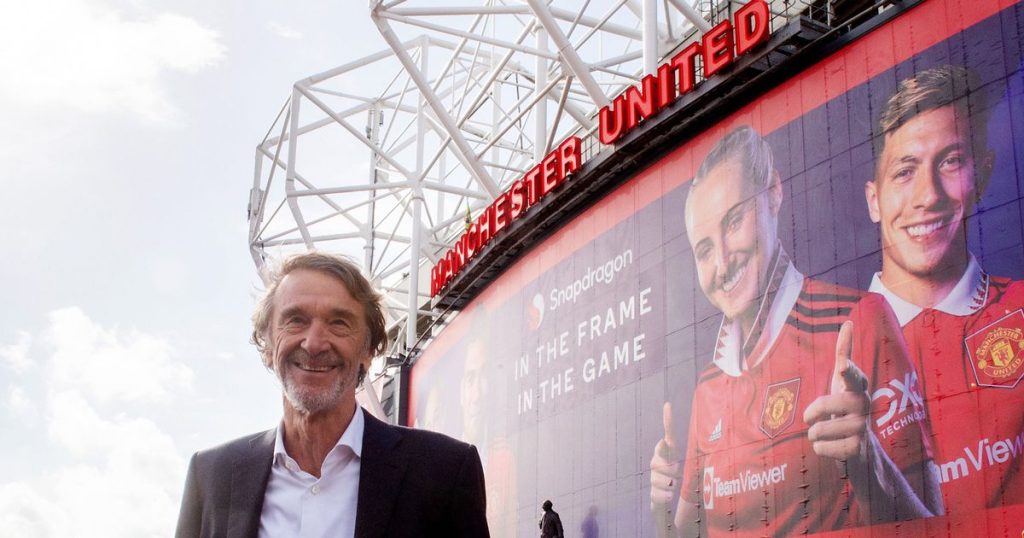Sir Jim Ratcliffe, a minority owner of Manchester United, is considering transforming Old Trafford through either renovation or a complete rebuild. His vision involves turning the stadium into a modern 90,000-capacity venue, aiming to make it the “Wembley of the North.” However, this ambitious plan comes with a significant financial cost for the club. Rob Wilson, an expert in finance and business systems, warned that whichever option United chooses, they are likely to incur a short-term loss of around £15 million. This loss would be due to the closure of parts of the stadium during construction, leading to reduced revenue from matchday sales and ancillary services.
Should Manchester United opt for rebuilding Old Trafford, they would need to relocate temporarily, adding to the financial strain. Wilson estimated that the relocation costs alone could exceed £10 million, not to mention the additional revenue losses from downsizing to a lower-capacity venue during the construction period. Staying at the current stadium while renovations are underway would also result in lower income due to restricted attendance. Despite these initial setbacks, Wilson suggested that in the long term, a new or enhanced stadium would be a wise investment with increased seating capacity that could eventually offset the early losses.
In addition to financial concerns, the logistical challenges of finding a temporary home for United during the stadium transformation process add another layer of complexity. Wilson highlighted that other clubs in the North-West region might not be willing to engage in a stadium-sharing agreement due to their smaller capacities. This presents United with a dilemma, where any decision they make regarding the future of Old Trafford would have both short-term financial implications and long-term benefits. The prospect of securing public funds to support the project has also been ruled out, leaving the club to bear the costs independently.
Furthermore, the uncertainty surrounding manager Erik ten Hag’s future at United adds to the club’s challenges. Amid discussions of potential record-breaking transfers and meetings with other managers, the restructuring of Old Trafford remains a pressing issue. The club’s decision on whether to renovate or rebuild the iconic stadium will not only impact their financial standing but also shape their sporting ambitions. As United navigate this crucial stage in their history, they will need to carefully weigh the costs and benefits of each option to ensure a successful transformation that aligns with their aspirations of progress and competitiveness in European football. Ultimately, the fate of Old Trafford and its potential rebirth as a world-class venue rests on the strategic decisions made by the club’s leadership and stakeholders.


